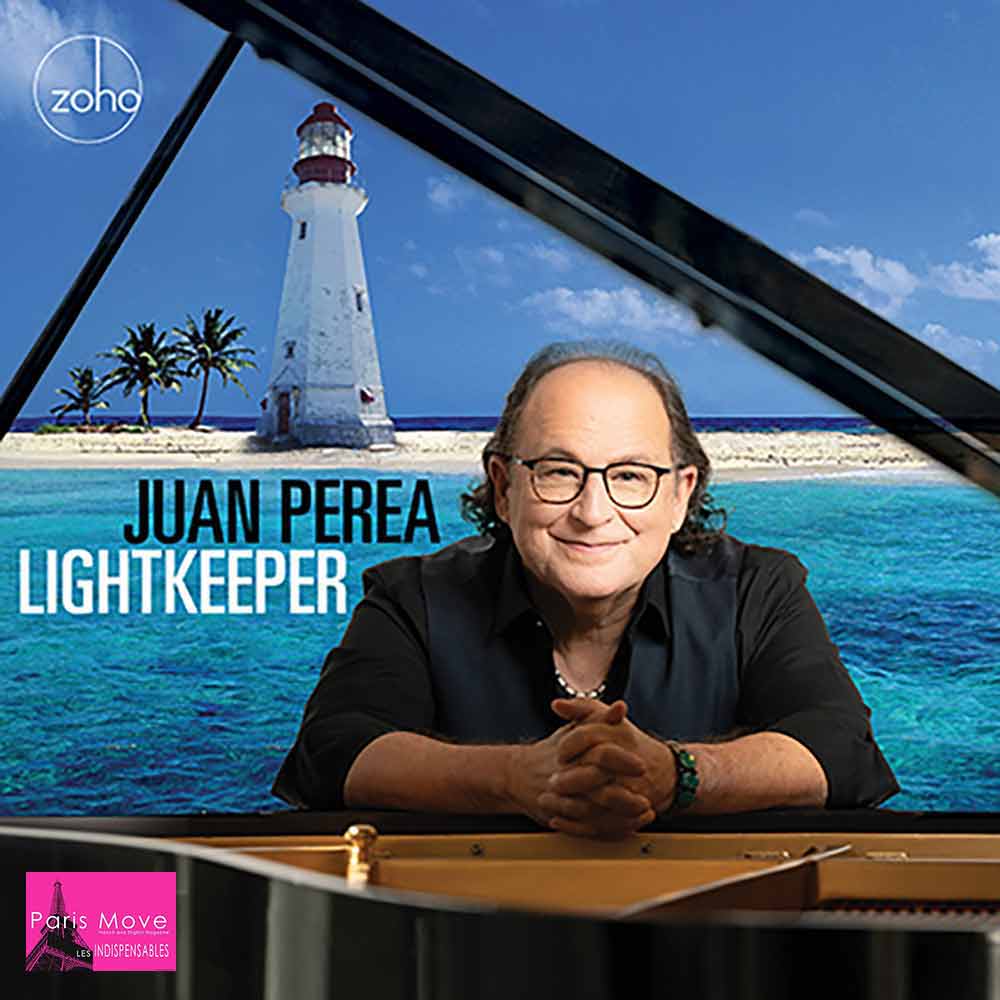| Jazz |

Sometimes, an album falls into your hands, and from the very first glance, you know, naively and instinctively—that you are in for a great experience. Such is the case with this album by composer and keyboardist Juan Perea, who sets the record straight from the very first track, a fiery rendition of Tito Puente’s Oye Como Va. With exquisite musical arrangements, he pours his passion into every note. And yet, do not bother searching for a website or biography online you will find nothing. Simply know this: if, like me, you recognize this album as a work of the highest caliber, it is no accident. The producer is none other than George Witty, a man who has collaborated with some of the most revered artists on the planet: The Brecker Brothers, Herbie Hancock, Grover Washington Jr., Chaka Khan, and many more.
Juan Perea is no newcomer to the piano; his career is already long and distinguished. A seasoned musician and educator, he has patiently waited until the age of 68 to release his debut album, Lightkeeper. And upon listening, the reason becomes clear: this is, without a doubt, the culmination of a lifetime of reflection, a quest for the highest level of artistry. The result is simply breathtaking. A testament to Perea’s stature, one only needs to glance at the lineup of musicians who accompany him: Juan Perea on piano and keyboards (all tracks), Eric Marienthal on alto sax (1, 4, 8), Dean Brown on electric and acoustic guitar (1, 3-5, 8), Hadrien Feraud on bass (2), Jimmy Haslip on bass (5), Janek Gwizdala on bass (4), Gary Haase on bass (1, 3, 6, 8), Tom Brechtlein on drums (1-6, 8), and Steve Thornton on percussion (1-5, 8). This ensemble infuses the album with a singular energy, defying classification, and captivating from start to finish.
The title track, Lightkeeper, is perhaps the most faithful reflection of Juan Perea’s essence a pursuit of perfection in interpretation, a moment of sheer musical poetry that stands apart from the rest of the album. It provides a rare sense of serenity, a listening experience as soothing as it is profound. Like a pause between two movements, it sets the stage for what follows: a full-length version of Oye Como Va, where Perea’s musicianship once again shines. Eric Marienthal is nothing short of sublime, though one could argue that with such a foundation laid by the accompanying musicians, anyone would soar. Nearly ten minutes later, and certainly not by chance, Lightkeeper returns in an extended version an unexpected delight, reminiscent of how Eric Satie continues to inspire composers to this day.
Few people know this, but Paul Auster, whom I once met in Brussels, was a passionate jazz lover. I am almost certain he would have adored this album as much as I do for its audacity, its myriad proposals, and its boundless creativity. Writers and musicians share a similar mind a restless intellect that perceives, dissects, and reimagines. So, my gratitude goes to Juan Perea, whose work awakens in me, as it surely will in you, a love for great art the kind that both delights and provokes thought. Indeed, Lightkeeper belongs to that rare category of albums we deem essential. And make no mistake, Juan Perea does not simply revisit a great classic. He rewrites history and inscribes his name in gold.
Thierry De Clemensat
USA correspondent – Paris-Move and ABS magazine
Editor in chief Bayou Blue Radio, Bayou Blue News
PARIS-MOVE, February 26th 2025
Follow PARIS-MOVE on X
::::::::::::::::::::::
Track Listing:
Oye Como Va
Lifestyle
El Sueño
Tyner Tune
City Swing
Remembering You
Lightkeeper
Oye Como Va
Lightkeeper II
